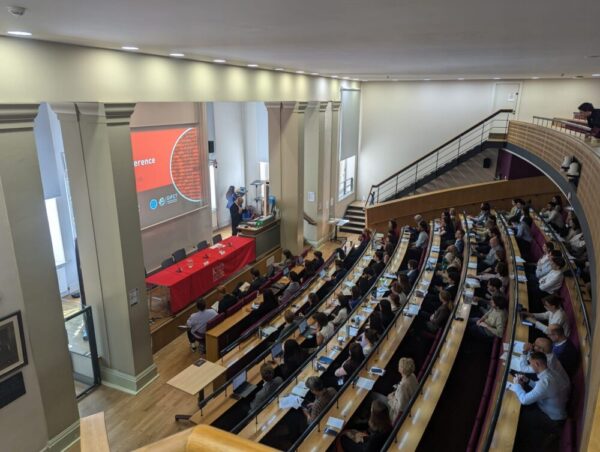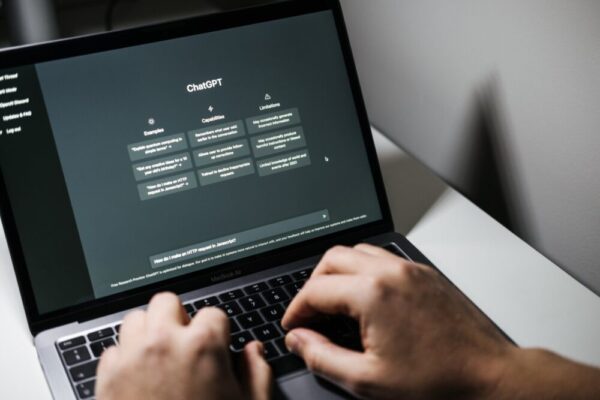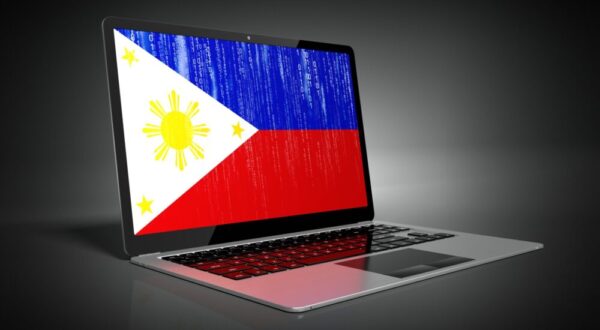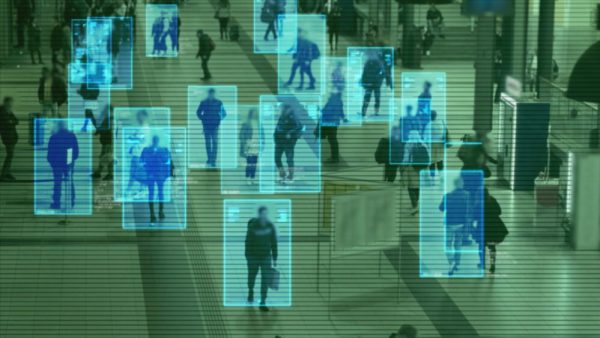- Jul072025

Techno-Caliphate or Terror from the Sky? ISWAP and Drone-Enabled Insurgency in the Lake Chad Basin Region
Insurgents and terrorists have been exploiting drones for intelligence gathering, propaganda, and attacks on civilian and military targets for years.…
John Sunday Ojo - Jul022025

Playing with Hate: How Far-Right Extremists Use Minecraft to Gamify Radicalisation
This Insight will analyse how far-right extremist networks have turned Minecraft, one of the world’s most popular online games, into…
Gagandeep - Jun302025

Misogyny and Violent Extremism: Can Big Tech Fix the Glitch?
Content Warning: This Insight contains mentions of rape and violence against women. Sexual and Gender-Based Violence (SGBV) is preventable, yet…
Gazbiah Sans - Jun262025

AI and Counter-Terrorism in Africa: Assessing the Role of the African Union’s Continental AI Strategy
Artificial intelligence (AI) is fundamentally transforming societies by driving innovation in various sectors, including the security sector. However, its dual-use…
Brenda Mwale - Jun242025

Above the Battlefield: The Threat of UAVs in the Hands of VNAs
In 21st-century warfare, the loudest weapon may not be a missile, but rather the soft hum of a drone overhead.…
Matilde Gamba - Jun202025

Murder of the Universe? Efilist Terrorism in Palm Springs
On the morning of 17 May 2025, a 25-year-old suspect carried out a suicide attack using a vehicle-borne improvised explosive…
Manfredi Pozzoli - Jun182025

Nascent Adoption: Emerging Tech Trends by Terrorists in Afghanistan and Pakistan
In the Afghanistan-Pakistan region’s evolving threat landscape, terrorist groups have been slow in adopting technologies such as drones and generative…
Rueben Dass - Jun132025

The Fifth Annual GNET Conference: A Summary of Key Takeaways
On Wednesday, 28 May, the Global Network on Extremism and Technology (GNET) hosted its Fifth Annual Conference at King’s College…
GNET Team - Jun122025

Prompted to Harm: Analysing the Pirkkala School Stabbing and Its Digital Manifesto
On 20 May 2025, a stabbing incident occurred at a school in the town of Pirkkala, southern Finland, in which…
Anda Solea - Jun102025

Mapping the Money Trail: The Evolution of Terrorist Financing Networks in Indonesia
Introduction Terrorist exploitation of digital financing is a technological, regulatory, and enforcement problem everywhere extremists operate – all over the…
Jose Akmal - Jun052025

Guns by Drone: The Rise of Drone-Assisted Firearm Smuggling on Israel’s Southern Border
Introduction Israel has witnessed a sharp uptick in a previously rare tactic: the use of commercial drones to smuggle firearms…
Dr Yannick Veilleux-Lepage - Jun032025

Critical World Events: Extremist Misinformation Networks and Narratives in Times of Crisis
Introduction Global crises, such as COVID-19, produce societal instability and can create a fertile ground for radicalisation. Extremist actors (both…
Dr. William Allchorn - May302025

Inside Boko Haram’s Wallet: Digital Pathways to Terrorist Financing in Nigeria
Introduction Over the past two-plus decades, the intersection of terrorism and modern technology has significantly transformed Africa’s security landscape, enabling…
Abraham Ename Minko - May272025

Inside the Philippine Falangist Front: Online Communities as Enablers of Far-Right Extremism in Southeast Asia
Introduction Over the past five years, GNET authors have identified a thriving patchwork of far-right extremist (FRE) online communities based…
Saddiq Basha - May212025

‘Welcome Spring, Burn a Tesla’: The Insurrectionary Anarchist Campaign Against Tesla
Introduction This Insight explores the growing wave of attacks against Tesla across Europe and North America. While some incidents appear…
Mauro Lubrano - May192025

Modern-Day Lynchings: The Long History of Gamified White Supremacist Terrorism
Introduction When a terrorist opened fire on African Americans at a Tops Friendly Market in Buffalo, New York, in May…
Samantha Olson - May162025

In Translation: The Digital Growth of Bengali-Language At-Tamkeen Media
Introduction On 15 February 2025, the Bengali-language Islamic State-supportive At-Tamkeen Media Foundation created a room on Element. At-Tamkeen Media is…
Cara Rau - May142025

Cash Flow: Breaking Down the Houthis’ Multibillion-Dollar Financial Networks
Introduction Yemen-based Ansar Allah, widely known as the Houthis, continues to have a profound impact on global security. The group’s…
Adam Rousselle - May092025

Platforming the Caliphate: Hizb ut-Tahrir’s Digital Strategy and Radicalisation Risks
Introduction Hizb ut-Tahrir (HT) is a transnational terrorist organisation that advocates for the establishment of a global Islamic Caliphate. Although…
Muhammad Makmun Rasyid - May072025

IS Wilayah Somalia: Digital Propaganda and Strategy Against the Puntland and its Foreign Allies
Introduction The Islamic State in Somalia (ISS) has faced territorial and operational setbacks following a large-scale ground offensive by Puntland…
Mona Thakkar - May062025

“Everyone Will Remember Jamie”: A Post-Adolescence Reflection on Online Misogyny
Introduction The release of Adolescence, a 4-part drama on Netflix examining a teenager accused of murder, has propelled discussions about…
Erin Stoner - Apr302025

EcoFascism and Green Accelerationism: Ghosts of the Past or a Present Danger?
Introduction In recent years, extremist ideologies have exploited climate change-driven instability, using environmental issues to justify violence. Terms such as…
Aline Blanchard - Apr292025

Mali’s Environmental Crisis: The Link Between Climate Change and JNIM’s Rapid Expansion
Introduction Mali has been in a climate crisis for over half a century, experiencing at least 40 climate-related shocks between 1970…
Adam Rousselle - Apr282025

From Climate Hoax to Hate: The Overlap Between Climate Denial and White Supremacy on Spanish TikTok
Introduction Big tech platforms have a significant language moderation problem. There is a massive discrepancy among popular Western apps in…
Urszula Mrozowska - Apr232025

The Virtual Connection: Illicit Natural Resource Trade, Cryptocurrency, and Extremist Financing
Introduction The illicit extraction and trade of natural resources is a growing issue that afflicts many biodiverse regions across the…
Dan Bruton - Apr222025

Ecology as Collateral: The Hidden Cost of Houthi Warfare
Introduction Ansar Allah, also known as the Houthis, has quickly expanded from a local insurgent group in Yemen to a…
Anadi - Apr152025

Attack at the Pear Tree Inn: An Analysis of a British Terrorist’s Manifesto
The following is a Special Extended Insight Content warning: racial and antisemitic slurs. Manifesto and Tweets give insight into a…
Duncan Gardham - Apr112025

Automated Recruitment: Artificial Intelligence, ISKP, and Extremist Radicalisation
Introduction The role of artificial intelligence in terrorist recruitment has grown exponentially, which has had a significant impact on the…
Fabrizio Minniti - Apr092025

Mapping ISKP’s Strength: Social Network Analysis of Tech-Driven Jihad
Introduction The Islamic State (IS) has evolved to be one of the most serious threats to many states, no matter…
admin_gnet - Apr032025

Anonymity, Performance, and Identity: An Analysis of the Antioch Shooting
Introduction On 22 January 2025, a shooting at Antioch High School in Nashville, Tennessee, left one student dead and another…
Manfredi Pozzoli - Mar312025

When Grandpa Turns Extremist: Digital Immigrants, Radicalisation and the German Reich Citizens Movement
Introduction Online radicalisation studies and P/CVE research, more broadly, tend to focus primarily on younger individuals and cases.…
admin_gnet - Mar272025

The Great TikTok Migration: Western Extremists Flock to RedNote
Introduction Following the announcement on 15 January that TikTok would be banned in the United States on 19 January 2025,…
Guy Fiennes - Mar242025

Cryptocurrency and Extremism: How Social Network Analysis is Used to Track Extremist Cryptocurrency Donations
Introduction Among the digital tools emerging in today’s decentralised financial framework, cryptocurrency has been especially attractive for extremist fundraising by…
admin_gnet - Mar202025

Building Tech Capacity: Cross-Cultural, Gender-Responsive Solutions to Prevent Extremism in Gaming
Introduction When discussing social harms in online gaming spaces, the term “toxicity” frequently takes centre stage. It is often used…
Rachel Kowert - Mar182025

Digital Pathways to Violence: the Tech Ecosystem Behind the Antioch Shooting
Introduction: Technology, Radicalisation, and Security Failures On 22 January 2025, a 17-year-old student carried out a shooting at Antioch High…
Ricardo Cabral Penteado - Mar142025

Sadaqah Jariyah: The Thriving Cryptocurrency Fundraising Efforts Behind ISKP’s Official Media
Methodology The authors monitored the official and unofficial channels, as well as internal discussions of ISKP media operatives and supporters,…
Mona Thakkar
GNET’s Research Digest
Sign up for our monthly newsletter to stay updated about our work
